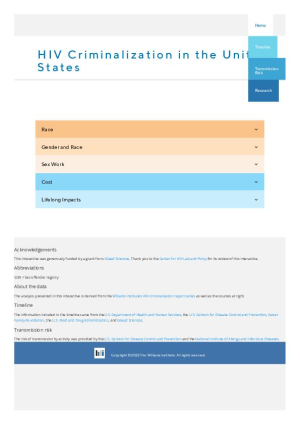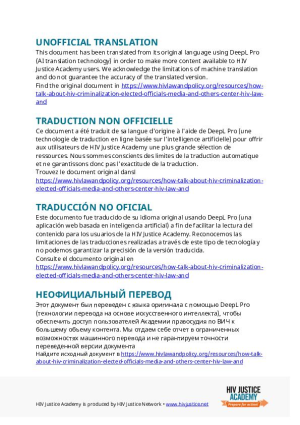HIV Criminalization in the United States
Interactive tool looking at the impact of HIV criminal laws on people living with HIV in nine US states: California, Florida, Georgia, Kentucky, Louisiana, Missouri, Nevada, Tennessee, Virginia.
Déclaration sous serment transmise à la Haute Cour du Malawi sur l’allaitement
Déclaration sous serment transmise à la Haute Cour du Malawi par le Dr R. Bland concluant que, de son avis d’expert, le risque de transmission du VIH à l’enfant après une seule exposition au lait maternel d’une femme sous traitement antirétroviral est « infiniment petit ». (Appel pénal n° 36 de 2016).


